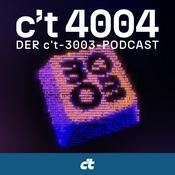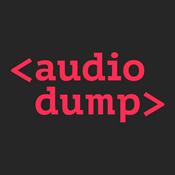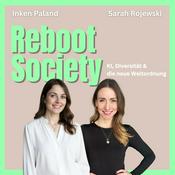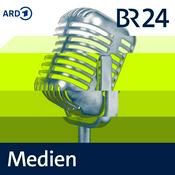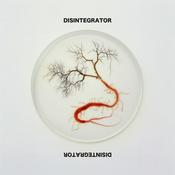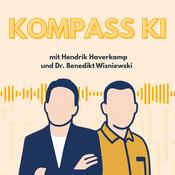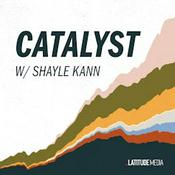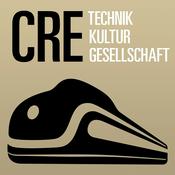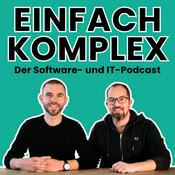379 Episoden
- An airhacks.fm conversation with Christofer Dutz (christofer-dutz) about:
first computer was a Commodore C64 from Hannover Messe,
early programming in Basic,
playing Wizards of War game on cassette tape,
growing up in Melbourne Australia until age ten,
visiting Ayers Rock and seeing prehistoric armored fish in puddles,
learning C and C++ at Volkshochschule around 1992,
memory management challenges with DOS gaming like X-Wing vs TIE Fighter and Wing Commander,
starting Java at Technical University of Darmstadt in 1998 with version 1.0.7,
appreciating Java's simplicity compared to C++ and no system crashes from memory errors,
early involvement with Apache Cocoon for XML and XSL transformations,
contributing to eXist-db XML database as committer number two,
working with XML XSL and XSLT for data transformation,
frustrations with YAML compared to XML,
transition from Cocoon to Adobe Flex after Cocoon switched to Spring and Maven,
becoming co-maintainer of Flex Mojos Maven plugins,
Adobe donating Flex to Apache Software Foundation,
attending ApacheCon in Sinsheim and connecting with Apache committers,
committer and PMC member of 12 active Apache projects,
firefighting role fixing Maven builds for stuck projects,
retiring Apache Cocoon project,
strong focus on industrial IoT projects,
Apache IoTDB as best time series database,
Apache StreamPipes for cloud IoT orchestration,
Apache Camel and Apache NiFi involvement,
founding Apache PLC4X in 2017 at codecentric,
Apache PLC4X as JDBC-like interface for industrial equipment communication,
spending 80-90 hours per week on PLC4X for nine years,
challenges with industrial automation industry not understanding open source,
anecdote about steel melting plant operator expecting free enterprise support,
Germany being a difficult market for industrial automation consulting,
founding ToddySoft company end of last year,
building installable products and plugins for industrial solutions,
ethical approach to open source by only selling products from projects he contributes to,
real-time definitions varying from tens of milliseconds in cloud to nanoseconds in industrial systems,
ToddySoft named after PLC4X mascot Toddy the palm civet (toddy cat),
plans for future episode discussing IoTDB StreamPipes PLC4X and NiFi use cases
Christofer Dutz on LinkedIn: christofer-dutz - An airhacks.fm conversation with Thomas Wuerthinger (@thomaswue) about:
clarification of GraalVM release cadence changes and decoupling from openJDK releases,
GraalVM focusing on LTS Java releases only (skipping non-LTS like Java 26),
GraalVM as a multi-vendor polyglot project with community edition and third-party vendors like Red Hat BellSoft and microdoc,
increased focus on python support due to AI popularity,
GraalVM team alignment with Oracle Database organization,
Oracle Multilingual Engine (MLE) for running JavaScript and Python in Oracle Database,
MySQL MLE integration,
native image support for stored procedures in Oracle Database,
shipping lambda functions from client applications to database for temporary execution,
treating Oracle Database as an operating system for running business logic,
serverless workloads directly in Oracle Database,
application snapshotting similar to CRaC but running in user space without kernel privileges,
efficient scale-to-zero capabilities with native images,
Oracle REST Data Services service generalization for serverless execution platform,
database triggers for workflow systems and application wake-up,
durable functions with transactional state storage in Oracle Database,
comparison to AS400 architecture with transaction manager database and operating system in same memory,
memory price increases making GraalVM native image more attractive,
lower memory consumption benefits of native image beyond just startup time,
CPU-based inference support with SIMD and Vector API,
TornadoVM for GPU-based inference built on Graal compiler,
WebAssembly compilation target for native images,
edge function deployment with WebAssembly,
Intel memory protection keys for sandboxed native image execution,
native image layers for shared base libraries similar to docker layers,
profile-guided optimizations for size reduction,
upx binary compression for 3x size reduction,
memory savings from eliminated class metadata and profiling data not garbage collector differences,
32-bit object headers in serial GC smaller than HotSpot,
polyglot integration allowing Python and JavaScript embedding in Java applications,
Micronaut framework compile-time annotation processing,
quarkus framework best alignment with native image for smallest binaries,
GraalVM roadmap focused on database synergies and serverless innovation
Thomas Wuerthinger on twitter: @thomaswue Building a Production-Ready Postgres Kubernetes Operator in Java with Quarkus and GraalVM
10.1.2026 | 1 Std. 5 Min.An airhacks.fm conversation with Alvaro Hernandez (@ahachete) about:
discussion about LLMs generating Java code with BCE patterns and architectural rules,
Java being 20-30% better for LLM code generation than python and typescript,
embedding business knowledge in Java source code for LLM context,
stackgres as a curated opinionated stack for running Postgres on kubernetes,
Postgres requiring external tools for connection pooling and high availability and backup and monitoring,
StackGres as a Helm package and Kubernetes operator,
comparison with oxide hardware for on-premise cloud environments,
experimenting with Incus for system containers and VMS,
limitations of Ansible for infrastructure automation and code reuse,
Kubernetes as an API-driven architecture abstracting compute and storage,
Custom Resource Definitions (CRDs) for declarative Postgres cluster management,
StackGres supporting sharding with automated multi-cluster deployment,
13 lines of YAML to create 60-node sharded clusters,
three interfaces for StackGres including CRDs and web console and REST API,
operator written in Java with quarkus unlike typical Go-based operators,
Google study showing Java faster than Go,
GraalVM native compilation for 80MB container images versus 400-500MB JVM images,
fabric8 Kubernetes client for API communication,
reconciliation cycle running every 10 seconds to maintain desired state,
pod local controller as Quarkus sidecar for local Postgres operations,
dynamic extension installation without rebuilding container images,
grpc bi-directional communication between control plane and control nodes,
inverse connection pattern where nodes initiate connections to control plane,
comparison with Jini and JavaSpaces leasing concepts from Sun Microsystems,
quarter million lines of Java code in the operator mostly POJOs predating records,
PostgreSQL configuration validation with 300+ parameters,
automated tuning applied by default in StackGres,
potential for LLM-driven optimization with clone clusters for testing,
Framework Computer laptop automation with Ubuntu auto-install and Ansible and Nix,
five to ten minute full system reinstall including BIOS updates
Alvaro Hernandez on twitter: @ahachete- An airhacks.fm conversation with Ales Justin (@alesj) about:
Slovenian Christmas traditions,
career journey from Bitcoin to Strimzi to quarkus development,
Quarkus gRPC implementation using Google's legacy gRPC versus native Vert.x-based gRPC server,
plans to make Vert.x gRPC the default in Quarkus with Vert.x 5,
gRPC transcoding and gRPC-web browser support coming with new Vert.x version,
OpenTelemetry integration in Quarkus with Bruno Baptista leading the effort,
LGTM container image from Grafana containing Loki Grafana Tempo and Mimir for observability testing,
Quarkus observability dev services providing out-of-the-box Grafana dashboards,
custom Grafana dashboard configuration support in Quarkus applications,
evolution from MicroProfile Metrics to micrometer to OpenTelemetry as the preferred standard,
Protocol Buffers (protobuf) version migration challenges from proto 3 to proto 4 breaking Pulsar integration,
WebAssembly-based protoc compiler replacing platform-specific binaries reducing dependency size from 100MB to 2MB,
gRPC service development in Quarkus using GRPCService annotation and generated classes,
gRPC client injection using GRPCClient annotation similar to REST client pattern,
sharing protobuf definitions between projects using Git submodules for source code sharing,
gRPC bidirectional streaming support in Quarkus,
OpenTelemetry spans attributes and events for business and technical observability,
gRPC interceptors for server and client telemetry instrumentation,
VictoriaMetrics as Prometheus-compatible alternative with push-based metrics,
OpenTelemetry logging support in Quarkus,
OpenBlend Slovenia Java conference history from Java Blend to Oracle partnership,
conference details with 400-450 attendees at Slovenian Adriatic coast in late May
Ales Justin on twitter: @alesj - An airhacks.fm conversation with Johan Haleby (@johanhaleby) about:
first computer experience with Commodore C64 and typing Basic programs from instruction manuals,
early gaming experiences and interest in understanding load commands,
transition to Amiga 500 Plus for demo scene scripting and composition,
moving to PC era with 486 SX25 and four megabytes of RAM,
learning Turbo Pascal and creating 2D Super Mario-inspired games,
experimenting with inline assembler in Pascal and reading "The Art of Assembly Programming",
reverse engineering games using Win32 disassembler to bypass license checks,
studying computer science at Blekinge and Lund University in Sweden,
first job at JayWay consultancy firm working on IKEA project in 2005,
early adoption of Spring framework and automated testing practices,
comparison of old-style EJB with heavy XML configuration versus Spring's lightweight approach,
the evolution from XML-based configuration to annotation-based Java EE 5 and 6,
creating PowerMock with colleague Jan Kronqvist to mock static methods and final classes,
using asm and JavaAssist for bytecode manipulation instead of AspectJ,
implementing custom class loaders where each JUnit method executed in different class loader,
deep clone module for cloning object graphs between class loaders,
tight coupling challenges between PowerMock and Mockito/EasyMock/JUnit versions,
transition from EasyMock's record-replay pattern to Mockito's when-then approach,
modern preference for avoiding mocks and testing against real cloud environments,
optimizing for fast CI/CD pipelines rather than local simulation,
structuring code to separate infrastructure concerns from pure business logic,
using Java Records as pure data carriers versus adding behavior to records,
Clojure-inspired philosophy of decoupling state from behavior and identity,
Rich Hickey's "Simple Made Easy" talk and definitions of simple versus easy,
multi-methods in functional languages as alternative to polymorphism,
domain modeling example with network devices and fiber channel connections,
benefits of object-oriented polymorphism for transparent persistence and simple code,
avoiding religious adherence to patterns in favor of pragmatic solutions,
Maven's stability and opinionated approach versus Gradle's flexibility,
reducing external dependencies and Maven plugins in favor of CI/CD automation,
the NPM ecosystem's over-modularization compared to Java's more reasonable approach,
decline of OSGi hype and return to simpler monolithic architectures,
Johan's current work on Occurrent Event Sourcing library and cloud events
Johan Haleby on twitter: @johanhaleby
Weitere Technologie Podcasts
Trending Technologie Podcasts
Über airhacks.fm podcast with adam bien
Java, Serverless, Clouds, Architecture and Web conversations with Adam Bien
Podcast-WebsiteHöre airhacks.fm podcast with adam bien, ARD Klima Update und viele andere Podcasts aus aller Welt mit der radio.de-App

Hol dir die kostenlose radio.de App
- Sender und Podcasts favorisieren
- Streamen via Wifi oder Bluetooth
- Unterstützt Carplay & Android Auto
- viele weitere App Funktionen
Hol dir die kostenlose radio.de App
- Sender und Podcasts favorisieren
- Streamen via Wifi oder Bluetooth
- Unterstützt Carplay & Android Auto
- viele weitere App Funktionen


airhacks.fm podcast with adam bien
Code scannen,
App laden,
loshören.
App laden,
loshören.






